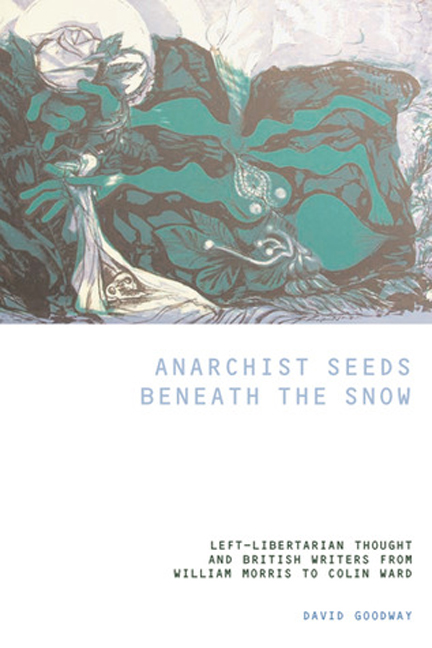 Anarchist Seeds Beneath the Snow
Anarchist Seeds Beneath the Snow Book contents
- Frontmatter
- Contents
- Dedication
- Acknowledgements
- Abbreviations
- 1 Introduction
- 2 Anarchism and libertarian socialism in Britain: William Morris and the background, 1880–1920
- 3 Edward Carpenter
- 4 Oscar Wilde
- 5 John Cowper Powys I: His life-philosophy and individualist anarchism
- 6 The Spanish Revolution and Civil War – and the case of George Orwell
- 7 John Cowper Powys II: The impact of Emma Goldman and Spain
- 8 Herbert Read
- 9 War and pacifism
- 10 Aldous Huxley
- 11 Alex Comfort
- 12 Nuclear disarmament, the New Left – and the case of E.P. Thompson
- 13 Christopher Pallis
- 14 Colin Ward
- 15 Conclusion
- Bibliography
- Index
13 - Christopher Pallis
- Frontmatter
- Contents
- Dedication
- Acknowledgements
- Abbreviations
- 1 Introduction
- 2 Anarchism and libertarian socialism in Britain: William Morris and the background, 1880–1920
- 3 Edward Carpenter
- 4 Oscar Wilde
- 5 John Cowper Powys I: His life-philosophy and individualist anarchism
- 6 The Spanish Revolution and Civil War – and the case of George Orwell
- 7 John Cowper Powys II: The impact of Emma Goldman and Spain
- 8 Herbert Read
- 9 War and pacifism
- 10 Aldous Huxley
- 11 Alex Comfort
- 12 Nuclear disarmament, the New Left – and the case of E.P. Thompson
- 13 Christopher Pallis
- 14 Colin Ward
- 15 Conclusion
- Bibliography
- Index
Summary
Christopher Pallis was the principal writer, translator and thinker of the Solidarity Group, which was at its most active and exerted greatest influence in Britain during the 1960s and the first half of the 1970s. It was a section of the Old Left which broke away to become, it can now be seen, part of the New Left, although it has never been accepted as such – especially since it almost immediately passed beyond any recognizable Marxism to a fully left-libertarian position, while largely holding back from the self-description of ‘anarchist’. Pallis, in particular, was always extremely critical of anarchism and the anarchists, denying that he himself was an anarchist, only being comfortable with the appellation of ‘libertarian socialist’. Because of the way in which his writing fell between the poles of Marxist humanism and anarchism; because it overwhelmingly appeared in cyclostyled publications, never being reprinted by mainstream publishers; and because of his own pseudonymous existence as ‘Martin Grainger’ and especially ‘Maurice Brinton’, Pallis has never received the recognition that the quality of his political output deserves.
Although in the late sixties and early seventies Solidarity's ambition was to inspire by its example a major movement – and indeed, at one time or another, at least twenty-five groups existed in London and elsewhere – in terms of numbers its membership was never appreciable. Its best-known adherent was almost certainly Ken Livingstone, former Leader of the GLC (Greater London Council) and current Mayor of London, who in an interview with Tariq Ali recalled that in the late sixties:
For a short period I joined an organization called Solidarity. Is it still going?
Just about…
It was just about going then! But I didn't play much of a role in its deliberations.
Yet this is to miss the point. Solidarity's significance lay not in its size but in the excellence of its publications. The group was initially called Socialism Reaffirmed and its journal first appeared in October 1960 under the title of Agitator (redolent of the Trotskyist origins of most of the group's founding members); but from the sixth issue (May 1961) it became Solidarity.
- Type
- Chapter
- Information
- Anarchist Seeds Beneath the SnowLeft-Libertarian Thought and British Writers from William Morris to Colin Ward, pp. 288 - 308Publisher: Liverpool University PressPrint publication year: 2006
